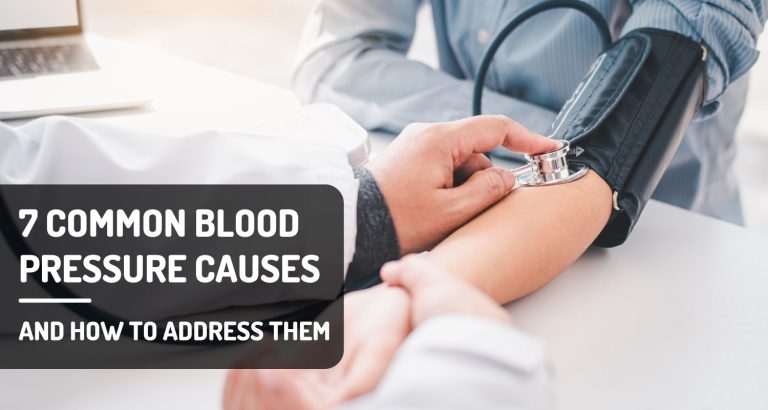Is There a Connection Between Hydration and Overall Health?

Water is the elixir of life, an essential component that sustains all living organisms on Earth. In the intricate web of maintaining good health, hydration plays a pivotal role. Beyond a mere quenching of thirst, staying adequately hydrated is crucial to maintaining overall health by supporting fundamental physiological functions.
This blog will explore the significance of hydration and overall health, delve into the causes and consequences of dehydration, and provide valuable insights into how one can combat dehydration for general well-being.
Understanding the Link Between Hydration and Overall Health
Water constitutes a significant portion of the human body, about 60% of our body weight. It is a crucial medium for various physiological functions, including digestion, nutrient transportation, temperature regulation, and waste elimination.
Hydration is the process of maintaining an adequate water balance in the body, ensuring that we have enough fluid to support these vital functions.
Dehydration: Causes and Consequences
Despite the apparent importance of hydration, many individuals find themselves grappling with dehydration. Dehydration occurs when the loss of fluids exceeds intake, leading to an imbalance that can severely affect health.
Causes of Dehydration
- Inadequate Fluid Intake: One of the primary causes of dehydration is the need to consume more fluids. Factors such as busy lifestyles, forgetfulness, or simply not recognizing the body’s need for water can contribute to insufficient intake.
- Excessive Physical Activity: Intense physical activity, especially in hot and humid conditions, can increase sweating, causing a significant loss of fluids.
- Illnesses and Health Conditions: Certain illnesses, such as fever, vomiting, or diarrhea, can accelerate fluid loss. Chronic conditions like diabetes and kidney diseases may also impact the body’s ability to regulate water balance.
Consequences of Dehydration
- Impaired Cognitive Function: Even mild dehydration can impair cognitive function, affecting concentration, alertness, and short-term memory.
- Reduced Physical Performance: Dehydration can lead to decreased endurance, muscle cramps, and an increased perception of effort during physical activities.
- Impaired Temperature Regulation: Water plays a crucial role in regulating body temperature. Dehydration can compromise the body’s ability to cool down through sweating, increasing the risk of heat-related illnesses.
- Kidney Stones: Inadequate water intake may contribute to the formation of kidney stones, as concentrated urine can lead to the crystallization of minerals.
How to Combat Dehydration
Preventing and addressing dehydration is essential for maintaining optimal health. Here are some practical tips to help combat dehydration:
- Stay Hydrated Throughout the Day: Make a conscious effort to drink adequate water. Carry a reusable water bottle to ensure easy access to water wherever you go.
- Monitor Urine Color: Tracking your urine may help with dehydration; the color of your urine can be a good indicator of your hydration status. A light, pale yellow color generally indicates proper hydration, while darker urine may suggest dehydration.
- Hydrate Before, During, and After Exercise: If you engage in physical activity, especially in challenging conditions, ensure you hydrate before, during, and after exercise. This helps replace fluids lost through sweating.
- Include Hydrating Foods in Your Diet: Fruits and vegetables with high water content, such as watermelon, cucumber, and oranges, can contribute to your overall fluid intake.
- Limit Caffeine and Alcohol Consumption: Both caffeine and alcohol can have diuretic effects, increasing fluid loss. Moderating their consumption can help maintain hydration.
The Best Way to Hydrate When Dehydrated
When dehydration has already set in, swift and effective action is crucial. The best way to rehydrate involves a combination of water intake and electrolyte replenishment:
- Water: The most obvious answer when you wonder, “What helps with dehydration?” Start by drinking water steadily throughout the day. Sip small amounts at regular intervals rather than consuming a large quantity simultaneously.
- Electrolyte-rich Beverages: In cases of severe dehydration or when physical activity has led to significant electrolyte loss, consider consuming electrolyte-rich beverages or oral rehydration solutions. These can help restore the balance of sodium, potassium, and other essential electrolytes.
- Coconut Water: Natural coconut water is a refreshing beverage and a source of electrolytes. It provides potassium, magnesium, and other minerals that can aid in rehydration.
The Impact of Hydration on Health: Cellular Hydration Diet
Cellular hydration delves into the idea that proper hydration goes beyond quenching thirst; it involves nourishing each cell with water. The cellular hydration diet incorporates foods with high water content and essential nutrients to support cellular function.
- Water-rich Fruits and Vegetables: Include a variety of fruits and vegetables in your diet, such as berries, watermelon, cucumber, and lettuce. These foods provide hydration and deliver vitamins, minerals, and antioxidants that support cellular health.
- Herbal Teas: Besides water, herbal teas can be hydrating and flavorful. Opt for caffeine-free options like peppermint or chamomile tea, which also offer potential health benefits.
- Broths and Soups: Warm broths and soups from water-rich vegetables can contribute to hydration and nutrient intake. They are particularly soothing and nourishing, especially during colder seasons.
- Chia Seeds: Chia seeds can absorb water and form a gel-like consistency, providing a unique way to stay hydrated. Mix chia seeds with water or add them to smoothies for a hydrating and nutrient-packed treat.
Conclusion
One must understand the link between hydration and overall health. Dehydration can have far-reaching consequences, affecting cognitive function, physical performance, and various physiological processes. Individuals can prevent and address dehydration by adopting simple habits like monitoring fluid intake, recognizing signs of dehydration, and making conscious food choices.
Remember, the journey to optimal health involves more than just drinking water when thirsty; it requires a holistic approach that nourishes every cell in the body. The cellular hydration diet and mindful hydration practices set the stage for a healthier, more vibrant life.
So, drink up, eat hydrating foods, and prioritize your body’s need for water—it’s the key to unlocking a healthier and more hydrated you.






